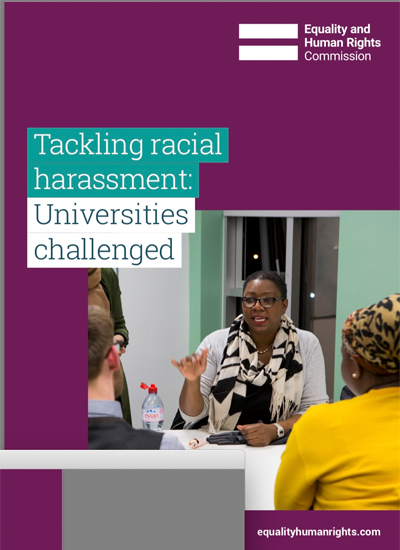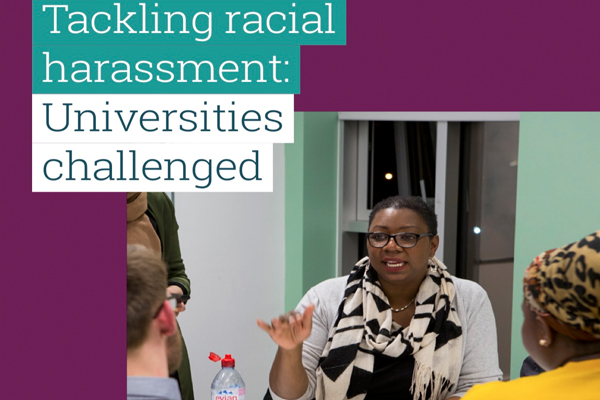An inquiry into racism on campus, carried out by the Equality and Human Rights Commission (EHRC), has found alarmingly high levels of racial harassment across British universities.
The report, entitled Tackling Racial Harassment: Universities Challenged, reveals that almost a quarter of ethnic minority students experienced racial harassment on campus, since starting their course. Yet two-thirds had not reported the incident to their university. Less than half of staff experiencing racial harassment were also reluctant to notify management. Both students and staff suggested that they did not come forward about their experiences because they had “no confidence that the incident would be addressed”, said EHRC.
According to the report, many of the UK’s higher education institutions are “both unaware of the issue and overconfident in their ability to handle it”.
ALARMING STATISTICS
The EHRC report highlights that racial harassment is not limited to minorities, with 9% of White students revealing that they too had experienced racial harassment on campus. Around 56% of racially-harassed students experienced racist name-calling, insults and jokes, while 20% said they had been physically attacked.

Photo credit: Pexels
Staff and students on the receiving end of racist language have been subjected to anti-Semetic and Islamophobic slurs, and anti-English sentiment has been reported at Scottish and Welsh universities, EHRC reveals. Other types of racism on campus included micro-aggressions (subtle and nuanced acts), being ignored or excluded from group activities/conversations and being exposed to racist material, which often formed part of a “repeated” pattern. In most cases, students said their harasser was another student, however, a large number of students revealed that their harasser was actually their tutor or another academic.
DAMAGING EFFECTS
Sadly, the findings demonstrate that racial harassment is a common occurrence for many students and staff in British universities. The effects are “seriously damaging to individuals and our society”, said EHRC. Students with huge potential are being left behind, with their grades suffering, a negative impact on their mental health, and, in some cases, they end up not finishing their course at all, with 1 in 20 students leaving their studies due to racial harassment. Even more alarming is that 8% of students said it had made them feel suicidal.
For ethnic minority staff, being excluded, marginalised or overlooked for professional development, and facing hostile comments and stereotyping are, unfortunately, “an all-too-common experience”. Microaggressions are often shrugged off and harassment brushed under the carpet, forcing some staff to leave their jobs, the report reveals. In fact, 3 in 20 staff said racial harassment caused them to leave their jobs, with many more saying they were considering, or had considered, doing so.

Photo credit: Pixabay
RECOMMENDATIONS TO TACKLE HARASSMENT
Commenting on the findings, Rebecca Hilsenrath, Chief Executive of the EHRC, stated: “We expect universities to be innovative environments that do more than just teach us how to pass exams. We look to them to help us to grow as individuals and prepare us to be good citizens. It is considerably disappointing to discover that, instead of being progressive and forward thinking, they are living in the past and have failed to learn from history.”
EHRC’s report offers a series of recommendations for higher education institutions and the UK Government, on how to tackle racial harassment. These include “more transparency in how universities tackle harassment” and to “build trust in reporting mechanisms”. It also recommends that educational institutions implement training to help its leaders not only understand issues of harassment, but allows them to “embed a culture that’s free from harassment and supports good relations”.
For a full list of EHRC’s recommendations and a copy of the findings, click here.









































